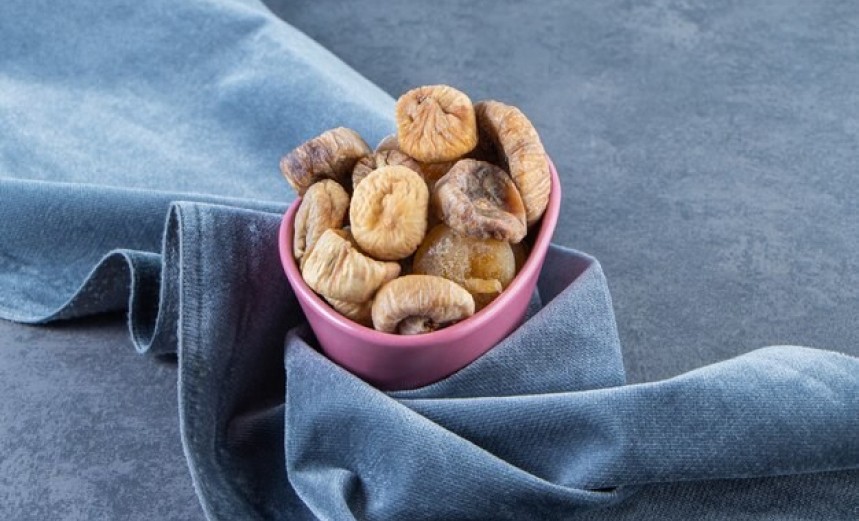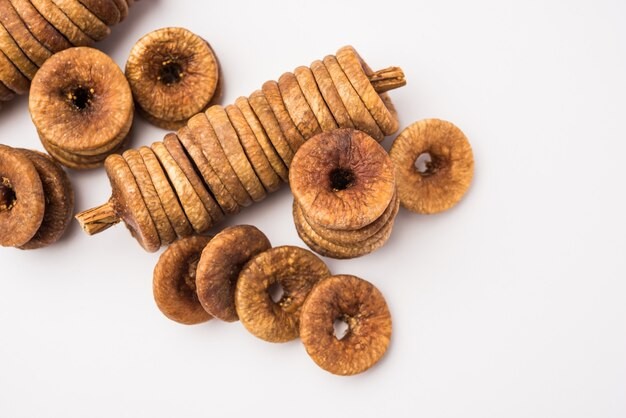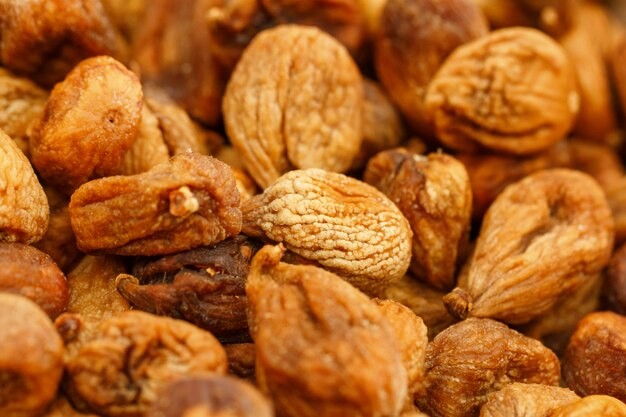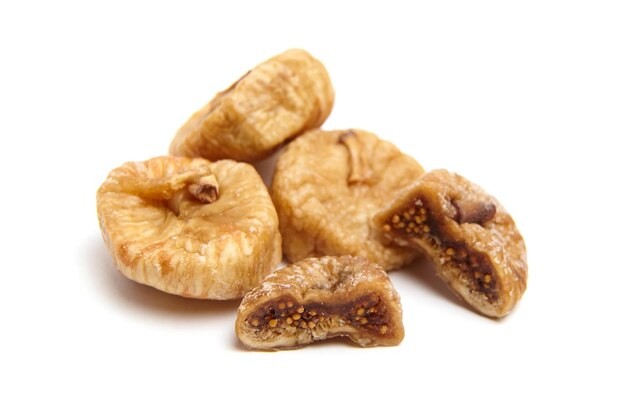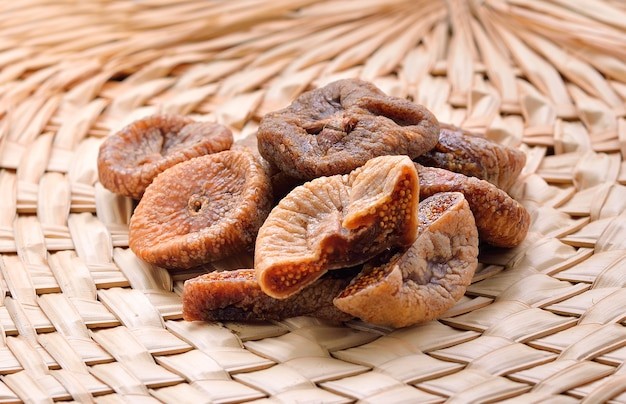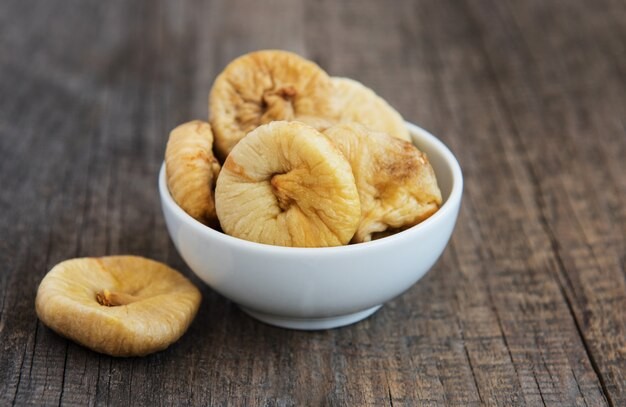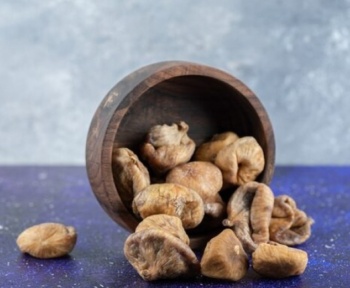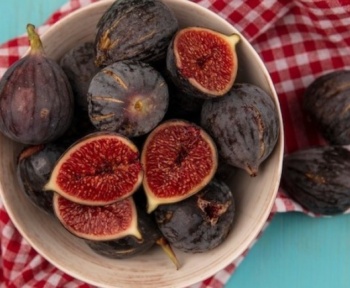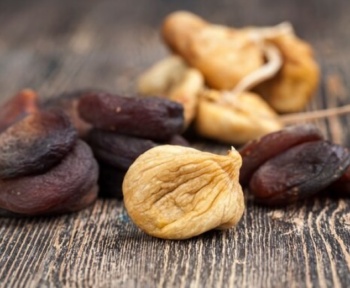Introduction
Dried figs, with their sweet, chewy texture and unique taste, have been enjoyed for centuries as a natural remedy and a nutritious snack. Packed with essential nutrients, these fruits are particularly beneficial for promoting bone health and supporting longevity. In this blog, we’ll explore the benefits of dried figs for bone health and long life, focusing on their nutrient profile and practical ways to incorporate them into your diet for maximum benefits.
Nutritional Profile of Dried Figs
Dried figs are an excellent source of vitamins and minerals for bone health and overall well-being. Below is a detailed breakdown of the nutritional profile of dried figs per 100 grams:
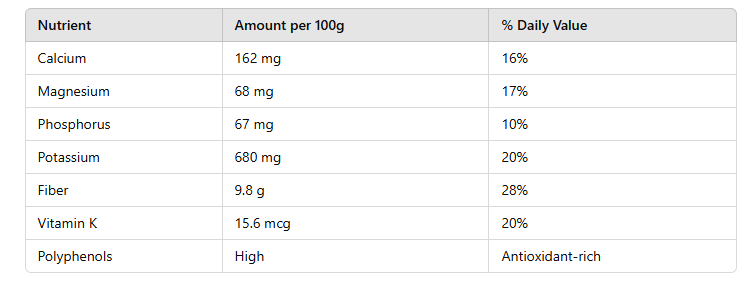
Critical Nutrients for Bone Health:
- Calcium: Essential for maintaining bone density.
- Magnesium: Plays a role in bone formation.
- Vitamin K: Vital for bone mineralization.
- Polyphenols: Antioxidants that protect cells, reducing bone-damaging oxidative stress.
Compared to other dried fruits, such as dates or raisins, dried figs are richer in calcium and fiber, making them ideal for those who prioritize bone health and longevity.
How Dried Figs Benefit Bone Health
Bone health is crucial for physical strength and mobility, particularly as we age. Here’s how the nutrients in dried figs contribute to maintaining strong bones:
Calcium Content
Calcium is the building block of bones. Dried figs provide around 16% of the daily calcium requirement per 100 grams, making them a valuable addition for individuals needing more calcium, especially if lactose intolerant.
Magnesium for Bone Formation
Magnesium is another essential mineral in dried figs that supports bone formation. Low magnesium levels have been linked to an increased risk of osteoporosis. Including magnesium-rich foods like dried figs helps maintain a balanced intake of this mineral.
Vitamin K for Bone Density
Vitamin K works with calcium to improve bone density and reduce fracture risk. Dried figs provide a natural source of vitamin K, making them an excellent option for those looking to protect their bones naturally.
Antioxidant Support
Oxidative stress can weaken bones over time. Dried figs’ polyphenols act as antioxidants, reducing oxidative damage and helping preserve bone density. Antioxidant-rich foods like dried figs can protect bone health long-term.
Tips for Incorporating Dried Figs for Bone Health
- Pairing with Vitamin D-Rich Foods: To improve calcium absorption, consume dried figs with foods rich in vitamin D, like salmon or fortified milk.
- Adding to Daily Snacks: Add dried figs to your snack routine for a tasty and nutritious option.
Longevity and Overall Health Benefits of Dried Figs
Longevity results from various factors, including a balanced diet, regular exercise, and stress management. Dried figs contribute positively to longevity and general health in the following ways:

Antioxidant Powerhouse
Dried figs are rich in antioxidants, neutralizing free radicals and reducing cellular aging. Polyphenols and vitamin K in dried figs support cellular health, contributing to a longer, healthier life.
Digestive Health Support
With almost 10 grams of fiber per 100 grams, dried figs promote digestion and a healthy gut microbiome, which is crucial for immune support and longevity. Fiber keeps your digestive system functioning smoothly, helping you feel energized and balanced.
Heart Health and Blood Pressure Support
The high potassium content in dried figs balances sodium levels, which helps regulate blood pressure. High blood pressure is a common concern that can lead to cardiovascular problems, making potassium-rich dried figs a heart-friendly choice.
Tips for Longevity with Dried Figs
- Moderation is Key: Consuming a moderate amount of dried figs regularly provides long-term benefits without too much sugar.
- Incorporate into Balanced Meals: Pair dried figs with protein sources for a balanced diet.
Tips and Best Practices for Choosing Quality Dried Figs
Selecting high-quality dried figs ensures you get the most nutritional benefits without unnecessary additives. Here’s a checklist to help you choose the best-dried figs:

Storage Tips
Store your dried figs in an airtight container in a cool, dry place to keep them fresh and nutrient-rich. Refrigeration is recommended for longer shelf life, especially if you buy them in bulk.
Optimal Serving Sizes
A standard serving size for dried figs is around 3-5 (about 40 grams). This provides a nutrient-dense portion without too much sugar.
Step-by-Step Guide to Using Dried Figs in Bone Health Recipes
Incorporating dried figs into your meals is simple and delicious. Here are some easy recipes to try:
Calcium-Rich Smoothie with Dried Figs
- Ingredients: 3 dried figs, 1 cup almond milk, one banana, and a handful of spinach.
- Instructions: Blend until smooth, and enjoy a nutrient-dense drink to support your bones.
Bone-Strengthening Fig and Yogurt Parfait
- Ingredients: 3 chopped dried figs, 1 cup Greek yogurt, a handful of almonds, and honey.
- Instructions: Layer yogurt and figs, sprinkle with almonds and drizzle honey on top.
Real-Life Case Studies and Testimonials
Many individuals have experienced positive results from incorporating dried figs into their diets. Below, we share insights from nutritionists and a case study:
Expert Interview
Dr. Emily Roberts, a UK-based nutritionist, says,
“Dried figs are one of my top recommendations for bone health. They’re naturally high in calcium and fiber, which contribute significantly to a balanced diet for bone strength and longevity.”
Case Study:
Meet Sarah, a 55-year-old from London. After incorporating dried figs into her daily routine, she noticed improvements in her digestion and felt more energetic overall. Her doctor even remarked on the stability of her bone density over time.
Press Release: Recent Study Highlights Bone-Strengthening Benefits of Dried Figs
A recent study shows that dried figs can significantly contribute to bone health thanks to their calcium, magnesium, and antioxidant content. Dried Fruits Guide encourages health-conscious individuals to incorporate dried figs into their daily routines to take advantage of these natural benefits.
Conclusion: Embracing Dried Figs for a Healthier, Longer Life
Dried figs are a delicious and versatile way to improve bone health and support longevity. By adding them to your diet, you’re embracing a nutritious option that offers a variety of health benefits. For more tips on incorporating dried figs and other dried fruits into your lifestyle, explore our resources at Dried Fruits Guide.
FAQs
A serving of 3-5 dried figs daily is an excellent addition to a balanced diet for bone health.
Dried figs have a higher concentration of nutrients per gram than fresh figs, especially in calcium and fiber.
While dried figs can support bone health, consulting a healthcare provider for osteoporosis prevention strategies is essential.
Dried figs are generally safe but should be eaten in moderation to avoid digestive discomfort.
Raisins are the most common dried fruit in the United States, followed by prunes, apricots, and dried cranberries. Dried figs are also famous for their nutritional benefits and unique taste.
Turkey is known for producing some of the highest-quality dried figs, especially the Smyrna variety. This variety is famous worldwide for its sweetness, softness, and nutrient-rich profile.
Yes, fig and Anjeer refer to the same fruit. “Anjeer” is commonly used in South Asia (e.g., India and Pakistan) to describe fresh and dried figs.
Dried figs can be costly due to their labor-intensive harvesting and drying processes, limited growing regions, and the high demand for this nutrient-rich fruit. Additionally, the drying process reduces the water content, concentrating nutrients and flavor, which can increase their price.
Eating two dried figs daily is a great way to benefit from their fiber, calcium, and antioxidant content without overconsuming natural sugars. This portion size can support bone health, digestion, and overall well-being.
Absolutely. Dried figs contain nutrients like fiber, calcium, potassium, and antioxidants. They support bone and digestive health and help regulate blood pressure, making them a highly nutritious addition to a balanced diet.
While dried figs alone don’t specifically target belly fat, their high fiber content can support weight management by promoting satiety and reducing hunger. However, maintaining a balanced diet and regular exercise are essential to effective fat loss.
One dried fig (or Anjeer) has approximately 47 calories. The calorie count can vary slightly depending on the size and exact variety.
The best time to eat dried figs is in the morning, which can boost natural energy and aid digestion. Many people also soak them overnight for added digestive benefits.
Yes, anjeer (dried fig) is particularly beneficial for females. It’s rich in calcium and iron, supporting bone health and helping to prevent anemia. It also contains antioxidants that benefit skin health and overall well-being.
People with allergies to figs, individuals with a tendency for kidney stones, and those with high blood sugar should limit their intake of anjeer due to its oxalate and sugar content. Additionally, anyone on blood-thinning medication should consult a doctor before consuming figs regularly, as they contain vitamin K.
Soaking anjeer (dried figs) in water overnight softens the fruit and can enhance digestion, making it easier for the body to absorb nutrients. Soaking also reduces the risk of constipation by boosting its fiber benefits.
Figs are suitable for men as they provide essential minerals like magnesium and potassium, which support heart health and overall vitality. They also contain antioxidants and nutrients that promote stamina and energy, making them beneficial for an active lifestyle.
Anjeer is considered a “hot” food in Ayurvedic and traditional medicine, which can warm the body. Because of this, it is often eaten in moderation during warmer months but is widespread in colder seasons for its warming effect.


